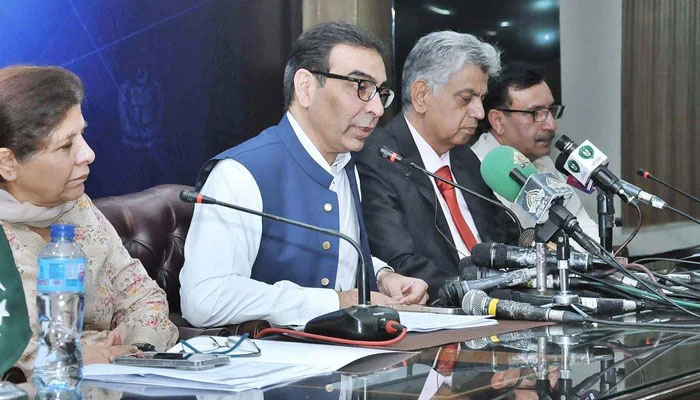Pakistan plans to sell excess power to Central Asia in winter season via CASA-1000
ISLAMABAD: Pakistan is looking to export its surplus electricity to Central Asian states, in the winter season, as it seeks to utilise the transmission infrastructure of a delayed regional power project and reduce its capacity payments burden.
The country will hold the technical talks with Kyrgyzstan, Tajikistan, Kazakhstan, Uzbekistan and the World Bank in Dubai next month to discuss the tariff and the amount of power that can be sold to the region from October to April.
Pakistan has a huge excess of electric power in the winter season, when its installed capacity of 45,000 megawatts (MW) drops to 9,000-12,000 MW, and wants to use the transmission system of the Central Asia South Asia Electricity Transmission and Trade Project (CASA-1000) to sell it to its neighbours.
The CASA-1000 project was conceived to export the hydro generation of 1,300 MW (300MW for Afghanistan and 1000 MW for Pakistan) from Kyrgyzstan and Tajikistan during the summer season, for five month, but now Pakistan has aspired to export its surplus electricity in winter to Central Asian states through the same infrastructure.
Earlier, a delegation headed by the Energy Minister Muhammad Ali on November 10 left for Bishkek, Kyrgyzstan, to attend the inter-governmental commission meeting mainly to find out the option to utilise the much-touted and delayed $1.17 billion CASA-1000 project structure for the export of electricity.
The minister told The News, that Kyrgyzstan says that it will erect a hydropower project in 2 years’ time so it may not need the electricity from Pakistan, but the regional countries such as Kazakhstan, Uzbekistan and others which are to be connected with regional grid of CASA-1000 will import electricity from Pakistan.
And that’s why a technical level meeting will be held in Dubai between the countries and the World Bank, to discuss the proposal to allow the flow of power in months from October to April which would help overcome its monster of capacity payments, which has now risen to Rs2.1 trillion.
Under the CASA project, Pakistan is supposed to purchase electricity from Tajikistan during the summer season at the cost of 9.50 cents per unit. Now Pakistan proposes to export the electricity to Afghanistan, Tajikistan, and Kyrgyzstan in the winter months through the same CASA-1000 transmission line.
CASA-1000 is already facing a delay of two years after the World Bank and USAID funding was held back after the regime change in Afghanistan.
Pakistan had earlier initiated the talks for the export of electricity to Tajikistan and Kyrgyzstan by using the open access clause of the Master Agreement under the CASA-1000 project. The project was approved in March 2014 and became effective in January 2018.
According to a relevant senior official of the Power Division, experts of the NTDC on behalf of Pakistan held talks in 2019 in Dubai with experts from Tajikistan on the export of electricity. Pakistan formally asked Tajikistan to invoke the open access clause in the agreement paving the way for two-way trade of electricity.
Under the existing deal, Pakistan is bound to import 1,000 MW electricity per day at 9.50 cents per unit in the summer season from May to October once this project comes on stream. And more importantly, Pakistan will also not bear the electricity transit loss in Afghanistan in case of a subversive activity.
-
 'Bridgerton' Season 4: Showrunner Talks About Violet's Steamy Romance
'Bridgerton' Season 4: Showrunner Talks About Violet's Steamy Romance -
 John Tesh Recalls ‘uncomfortable’ Backlash Over ’70s Romance With Oprah Winfrey
John Tesh Recalls ‘uncomfortable’ Backlash Over ’70s Romance With Oprah Winfrey -
 Meghan Markle, Prince Harry Problem Was Not ‘work’ During Time With Royals
Meghan Markle, Prince Harry Problem Was Not ‘work’ During Time With Royals -
 Meta Strikes Multi-billion-dollar AI Chip Deal With Google: Will The New Collaboration Pay Off?
Meta Strikes Multi-billion-dollar AI Chip Deal With Google: Will The New Collaboration Pay Off? -
 Gracie Abrams Breaks Silence After Losing 2026 BRIT Award
Gracie Abrams Breaks Silence After Losing 2026 BRIT Award -
 Deon Cole Takes Swipe At Nicki Minaj In Mock Prayer During NAACP Image Awards Monologue
Deon Cole Takes Swipe At Nicki Minaj In Mock Prayer During NAACP Image Awards Monologue -
 Jennifer Garner Reveals The Actress Who 'carried Through Things'
Jennifer Garner Reveals The Actress Who 'carried Through Things' -
 Shamed Andrew ‘awful’ Time As Trade Envoy Is Laid Bare By Insider
Shamed Andrew ‘awful’ Time As Trade Envoy Is Laid Bare By Insider -
 Belgium Seizes Suspected Russian Shadow Fleet Tanker
Belgium Seizes Suspected Russian Shadow Fleet Tanker -
 Liza Minelli Makes Bombshell Claim About Late Mother Judy Garland’s Struggle With Drugs
Liza Minelli Makes Bombshell Claim About Late Mother Judy Garland’s Struggle With Drugs -
 Shipping Giant Maersk Halts Suez Canal, Bab El-Mandeb Sailings Amid Escalating Conflict
Shipping Giant Maersk Halts Suez Canal, Bab El-Mandeb Sailings Amid Escalating Conflict -
 Matthew McCoughaney Reveals One 'gift' He Achieved With Losing Nearly 50 Pounds
Matthew McCoughaney Reveals One 'gift' He Achieved With Losing Nearly 50 Pounds -
 'Scream 7' Breaks Box Office Record Of Slasher Franchise: 'We Are Grateful'
'Scream 7' Breaks Box Office Record Of Slasher Franchise: 'We Are Grateful' -
 Bolivian Military Plane Crash Death Toll Rises To 20
Bolivian Military Plane Crash Death Toll Rises To 20 -
 'Sinners' Star Blasts Major Media Company For 2026 BAFTAs Incident
'Sinners' Star Blasts Major Media Company For 2026 BAFTAs Incident -
 Inside Scooter Braun, Sydney Sweeney's Plans To Settle Down, Have A Baby
Inside Scooter Braun, Sydney Sweeney's Plans To Settle Down, Have A Baby




